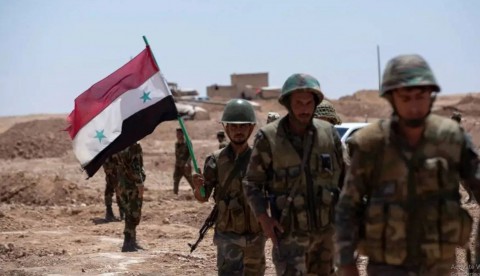Dr. Shehab Al-Makahleh
As I have stated repeatedly in television interviews and op-eds published in various newspapers and magazines across multiple languages, the Middle East is on the brink of a major conflict. I have warned that the real war will erupt by the end of December 2024 and persist until the spring of 2025. Recent developments in northern Syria, particularly the attack by the so-called Fath al-Sham militias headquartered in Idlib, offer compelling evidence that this dire prediction is quickly materializing.
This attack, far from being an isolated incident, is a symptom of broader, more dangerous undercurrents sweeping through the region. It raises critical questions about whether the groundwork is being laid for a major shift in the Middle East’s geopolitical landscape—possibly even the establishment of a new power structure in northern Syria, whispered about as a “new Israel.”
The Fath al-Sham Assault: A Prelude to Broader Conflict?
The assault by Fath al-Sham militias on Syrian military positions in Idlib is significant not only for its intensity but also for its timing. This group, with roots in Jabhat al-Nusra, has received tacit support from external actors at various points during the Syrian conflict. Their renewed activity signals a calculated effort to destabilize an already fragile region.
The attack serves as a microcosm of the region’s instability, where rival factions are vying for power amid competing international interests. It is not merely a continuation of the Syrian Civil War but could mark the beginning of a new chapter—one that aligns with broader ambitions to redraw territorial lines.
Northern Syria: A Fertile Ground for New Agendas
The idea of establishing a “new Israel” in northern Syria may sound far-fetched, but such strategic reconfigurations have precedent. The creation of new power centers or buffer zones in conflict-ridden regions has historically been a tool for global and regional powers to exert influence.
Northern Syria, with its strategic location and mosaic of ethnic and sectarian groups, could be shaped into a buffer state or autonomous region serving multiple agendas. For external powers, such a project could stabilize their own interests while exacerbating divisions among local actors.
A War Brewing on Multiple Fronts
The attack in Idlib is a potential catalyst for a broader conflict that will extend beyond Syria’s borders:
- Turkey and the Kurdish Question: Ankara’s military campaigns against Kurdish factions in northern Syria could escalate, dragging neighboring countries into the fray.
- Iran and its Proxies vs. Gulf States: The rivalry between Tehran and Sunni powers like Saudi Arabia is poised to intensify, especially in light of Iran’s unwavering support for the Assad regime.
- Israel’s Strategic Calculations: The possibility of an Iranian foothold near its borders is likely to provoke preemptive measures from Tel Aviv, escalating tensions further.
- Russia and the U.S.: Competing interests in Syria could draw the world’s two superpowers into direct confrontation, adding a dangerous global dimension to the conflict.
What Must Be Done?
The international community cannot afford to dismiss the warning signs. Decisive action is required to prevent the brewing conflict from consuming the region:
- Proactive Diplomacy: Regional and global powers must engage in comprehensive talks to address the underlying tensions in Syria and beyond.
- Accountability for External Actors: The role of foreign governments in arming and funding militias must be scrutinized, with mechanisms to curtail these activities.
- Humanitarian Priorities: With millions already displaced, the world must be prepared for another wave of refugees and ensure that aid reaches those in need.
Conclusion
I have consistently warned that the Middle East is hurtling toward a seismic conflict, and the recent attack in Idlib is but the latest confirmation of this trajectory. The brewing storm in northern Syria is not just a local issue—it is the flashpoint of a larger war that could engulf the region by year’s end.
The world must act now, decisively and collectively, to defuse tensions and prevent a catastrophe that will reshape the Middle East for generations. The warnings are clear; the question is whether they will be heeded in time.
 Geostrategic Media Political Commentary, Analysis, Security, Defense
Geostrategic Media Political Commentary, Analysis, Security, Defense





